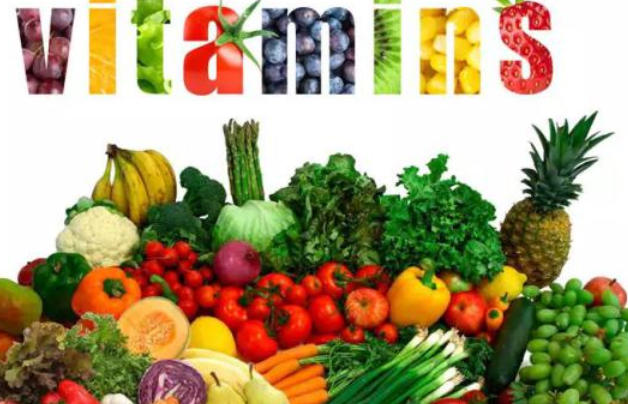natural vitamin b12 – Vitamin B12 is an essential nutrient that plays a critical role in several physiological processes in the body, including the metabolism of energy, the synthesis of red blood cells and DNA, and the production of neurotransmitters. While Vitamin B12 is widely available in animal-based foods, such as meat, poultry, fish, and dairy products, some individuals, such as vegans and vegetarians, may be at risk for Vitamin B12 deficiency.
For these individuals, it is important to consider alternative sources of Vitamin B12, such as natural Vitamin B12 sources. In this essay, we will discuss the role of Vitamin B12 in the body, the importance of natural Vitamin B12 sources, and the best natural sources of Vitamin B12.

Role of Vitamin B12 in the Body
Vitamin B12 is an essential nutrient that plays a critical role in several physiological processes in the body. Vitamin B12 is involved in the metabolism of energy, and a deficiency in Vitamin B12 can lead to fatigue and decreased energy levels. Vitamin B12 is also involved in the synthesis of red blood cells and DNA, and a deficiency in Vitamin B12 can lead to anemia, a condition in which there is a decrease in the number of red blood cells.
Additionally, Vitamin B12 is involved in the production of neurotransmitters, including serotonin, norepinephrine, and dopamine, which are responsible for regulating mood and behavior. Low levels of Vitamin B12 have been associated with low levels of these neurotransmitters, which may contribute to depression, anxiety, and other mental health conditions.
Importance of Natural Vitamin B12 Sources
While Vitamin B12 is widely available in animal-based foods, such as meat, poultry, fish, and dairy products, some individuals, such as vegans and vegetarians, may be at risk for Vitamin B12 deficiency. For these individuals, it is important to consider alternative sources of Vitamin B12, such as natural Vitamin B12 sources.
Natural Vitamin B12 sources are plant-based sources of Vitamin B12, such as mushrooms, algae, and fortified foods, such as fortified cereals and plant-based milks. These sources are important for individuals who follow a vegan or vegetarian diet, or for individuals who have difficulty absorbing Vitamin B12 from animal-based sources.
Best Natural Sources of Vitamin B12
- Mushrooms: Certain types of mushrooms, such as shiitake and maitake mushrooms, are natural sources of Vitamin B12. These mushrooms can be consumed cooked or raw and can be added to soups, salads, and stir-fry dishes.
- Algae: Certain types of algae, such as nori, kombu, and wakame, are natural sources of Vitamin B12. Algae can be consumed in the form of seaweed or as an ingredient in products such as miso soup, sushi, and seaweed snacks.
- Fortified Foods: Fortified foods, such as fortified cereals and plant-based milks, are also a good source of Vitamin B12. These products are fortified with Vitamin B12, and can be a convenient and easy way to meet daily Vitamin B12 requirements.
It is important to note that while these natural sources of Vitamin B12 may provide some Vitamin B12, they may not provide enough Vitamin B12 to meet daily requirements. For individuals who follow a vegan or vegetarian diet, or for individuals who have difficulty absorbing Vitamin B12 from animal-based sources, it is recommended to supplement with Vitamin B12.
Safety and Dosage
Vitamin B12 is considered safe, and adverse effects are rare when taken in recommended dosages. The recommended daily allowance (RDA) for Vitamin B12 is 2.4 micrograms for adults, and higher doses may be required for individuals with Vitamin B12 deficiency or those at risk for deficiency.
Individuals who have a history of liver or kidney disease, those who are pregnant or breastfeeding, and individuals who are taking certain medications, such as metformin and proton pump inhibitors, may be at increased risk for Vitamin B12 deficiency and may need to supplement with Vitamin B12.
It is important to consult with a healthcare professional before starting any Vitamin B12 supplement, as excessive amounts of Vitamin B12 can lead to adverse effects, such as nausea, diarrhea, and skin rashes. In addition, Vitamin B12 supplements can interact with certain medications, such as blood thinners, and it is important to discuss any supplements with a healthcare professional to ensure safety and efficacy.
Conclusion
Vitamin B12 is an essential nutrient that plays a critical role in several physiological processes in the body, including the metabolism of energy, the synthesis of red blood cells and DNA, and the production of neurotransmitters. For individuals who are at risk for Vitamin B12 deficiency, such as vegans and vegetarians, natural Vitamin B12 sources, such as mushrooms, algae, and fortified foods, may provide a convenient and alternative source of Vitamin B12.
However, it is important to note that while these natural sources of Vitamin B12 may provide some Vitamin B12, they may not provide enough Vitamin B12 to meet daily requirements. For individuals who are at risk for Vitamin B12 deficiency, it is recommended to supplement with Vitamin B12 under the guidance of a healthcare professional. By taking a balanced approach to Vitamin B12 intake, individuals can support overall health and well-being.


